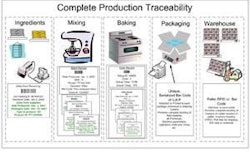The purpose of the study was to analyze serum concentrations of four different positive acute phase proteins (APPs)—C-reactive protein, haptoglobin, serum amyloid A and ceruloplasmin—in a model of experimentally short-term developed obesity in Beagle dogs. All APPs were quantified by commercially available ELISA methods. C-reactive protein was also determined by a highly sensitive time-resolved fluorometric assay.
There were no significant differences between APP concentrations at the beginning and end of the study in groups of dogs that increased their body condition scores. In addition, dogs with body condition scores of 4 and 5 did not show significant differences for any of the APPs studied compared with control dogs with body condition scores of 3, with the exception of a decrease in haptoglobin.
It was concluded that overweight induced in the experimental conditions of this study does not produce a significant change in acute phase proteins.
Source : A. Tvarijonaviciute et al., 2011. Serum acute phase proteins concentrations in dogs during experimentally short-term induced overweight, a preliminary study. Res Vet Sci 90: 31-34. doi: 10.1016/j.rvsc.2010.05.008
















